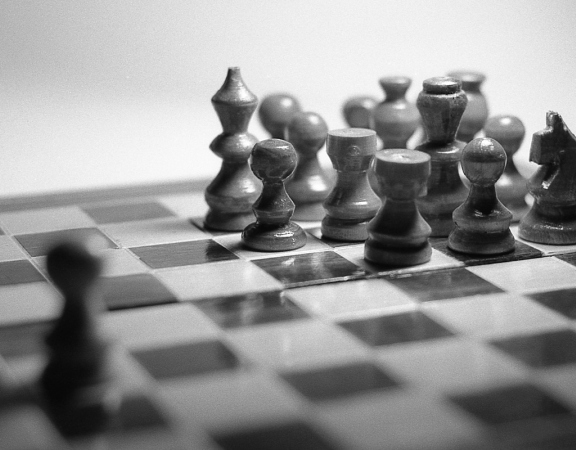What’s the Best Study Aid? It Could Be Your Running Shoes

5 Ways to Make Your GMAT Prep More Strategic
June 17, 202212 Things to Do Before You Hit the Submit Button
June 25, 2022What’s the Best Study Aid? It Could Be Your Running Shoes
Stress, anxiety, fear. For many students, these emotions come standard with studying for and taking the GMAT. While fear of a low score and anxiety over getting accepted can spur you to hit the books when you don’t feel like it, too much of these emotions can lay havoc on your test performance.
Test day nerves undermine the scores of countless test-takers, but negative emotions can also impact how well you study. For example, chronic stress has been shown to impair learning and memory. When levels of cortisol, the hormone released in response to stress, is elevated for prolonged periods, it can damage the brain cells in your hippocampus, the area of your brain used in memory and learning.
These emotions can create a vicious circle: the desire to do well on the GMAT creates stress, anxiety, and fear; in turn, these emotions impair your ability to study well and perform up to your potential on the test, which in turn creates more stress, anxiety, and fear.
So how do you mitigate the deleterious effects of stress, anxiety, and fear? Science has been touting a powerful remedy that not only provides a buffer against the negative effects of these emotions but also increases your capacity to learn: exercise.
Exercise is both a stress buster and brain enhancer
It’s a fact that exercise is essential for health and general well-being and not to mention a great way to relieve stress, but medical researchers are increasingly uncovering a link between exercise and intelligence. In Spark: The Revolutionary New Science of Exercise and the Brain, Dr. John Ratey explains that aerobic exercise acts as an antidote to depression, stress, memory loss, and cognitive decline.
Studies have continued to corroborate his message and uncover new links between exercise and intelligence. In 2013, a study by Boston University School of Medicine demonstrated that exercise may help improve your memory. The study measured certain hormones released during exercise, hormones that, unlike cortisol, are thought to directly benefit the hippocampus and therefore improve memory and learning abilities.
In another 2013 study, researchers found endurance exercise to increase the expression of brain-derived neurotrophic factor, which is known to promote the growth of new neurons. BDNF seems to function like a medicine against the ravages of anxiety and depression by sparking neuron growth, which may also help build your brain’s cognitive capacities.
What about exercise’s effect on academics? Researchers in the UK monitored the activities and academic performance of 5,000 children and found that the amount of physical activity the kids participated in were positively correlated with their academic performances in English, math, and science. Better yet, this correlation continued as the subjects’ aged.
Should I add exercise to my GMAT to do list?
Of course the UK study doesn’t prove that exercise lead to higher test scores, and the study involved children and teenagers, whose brains are still developing. However, given the accumulating evidence showing the cognitive benefits of exercise coupled with its stress relieving abilities, adding some consistent exercise to your daily routine is worth a try, especially if you already feel stressed about the test or just in general. Consistent exercise may not take you from a 50th percentile score to a 99th percentile score, but based on the research it will help your memory, learning ability, and a host of other critical cognitive skills.
Even if it’s just finding 15 minutes a day to go for a quick jog or using exercise as a break between study sessions, you can put the power of exercise to work for you. It’s also a great way to treat yourself well as you go through this stressful time. Do your mind and body a favor; get some exercise, relieve stress, clear your mind, and you’ll be more prepared to handle whatever the test throws at you.





1 Comment
good article !!!!!! haha !!!!!! yes